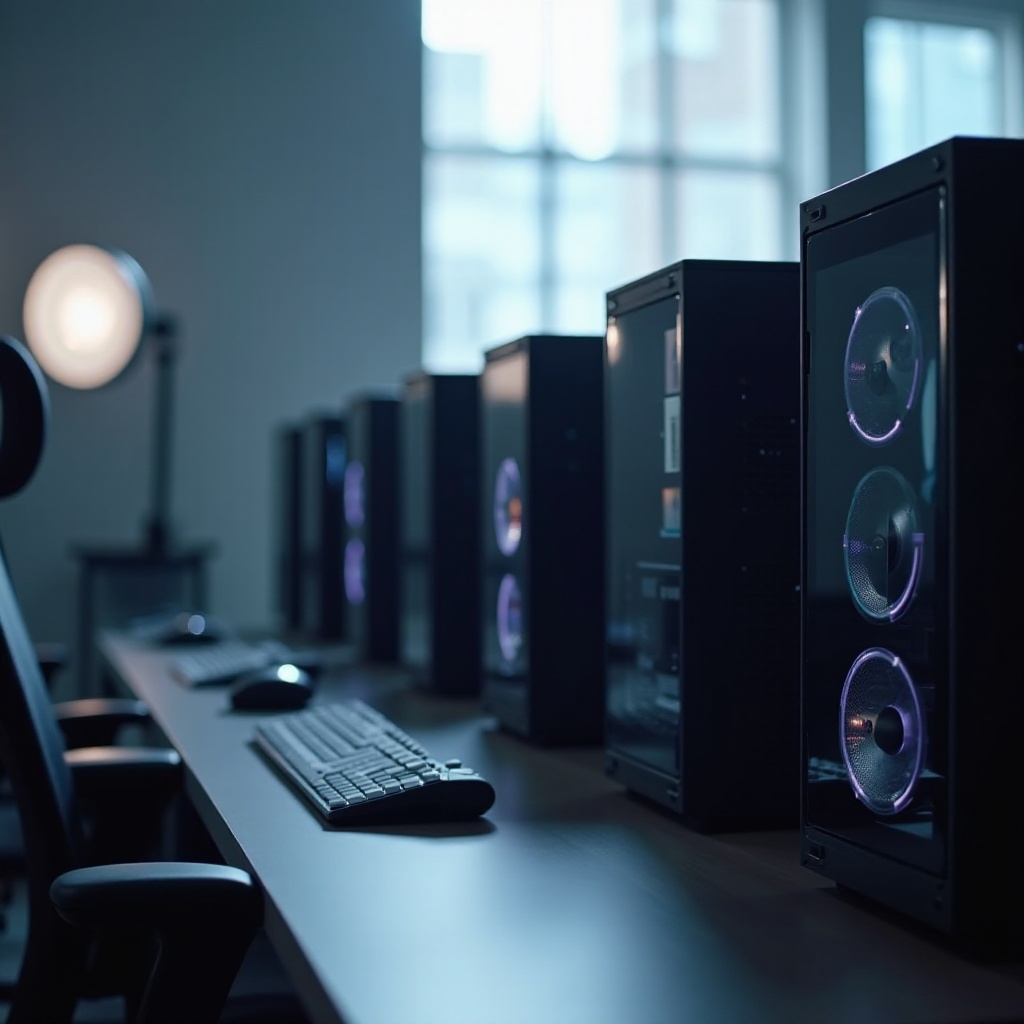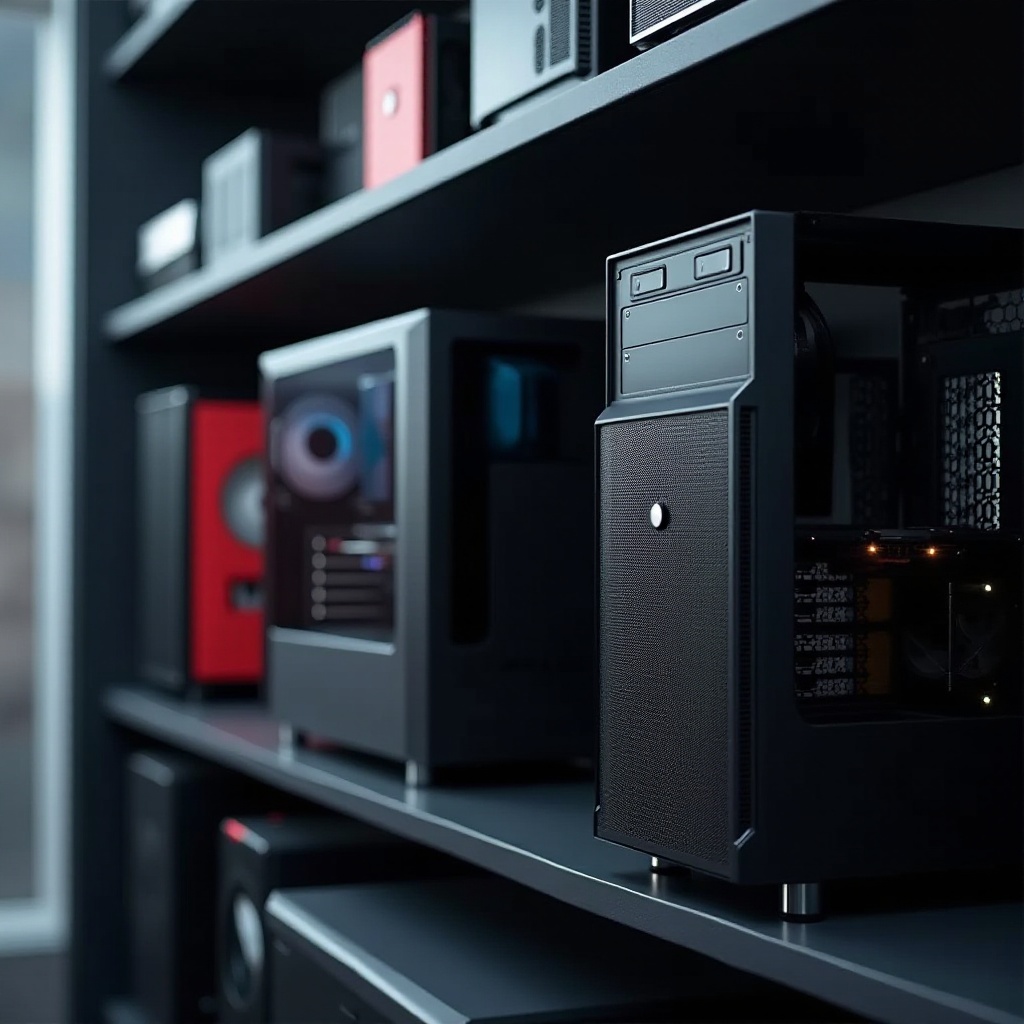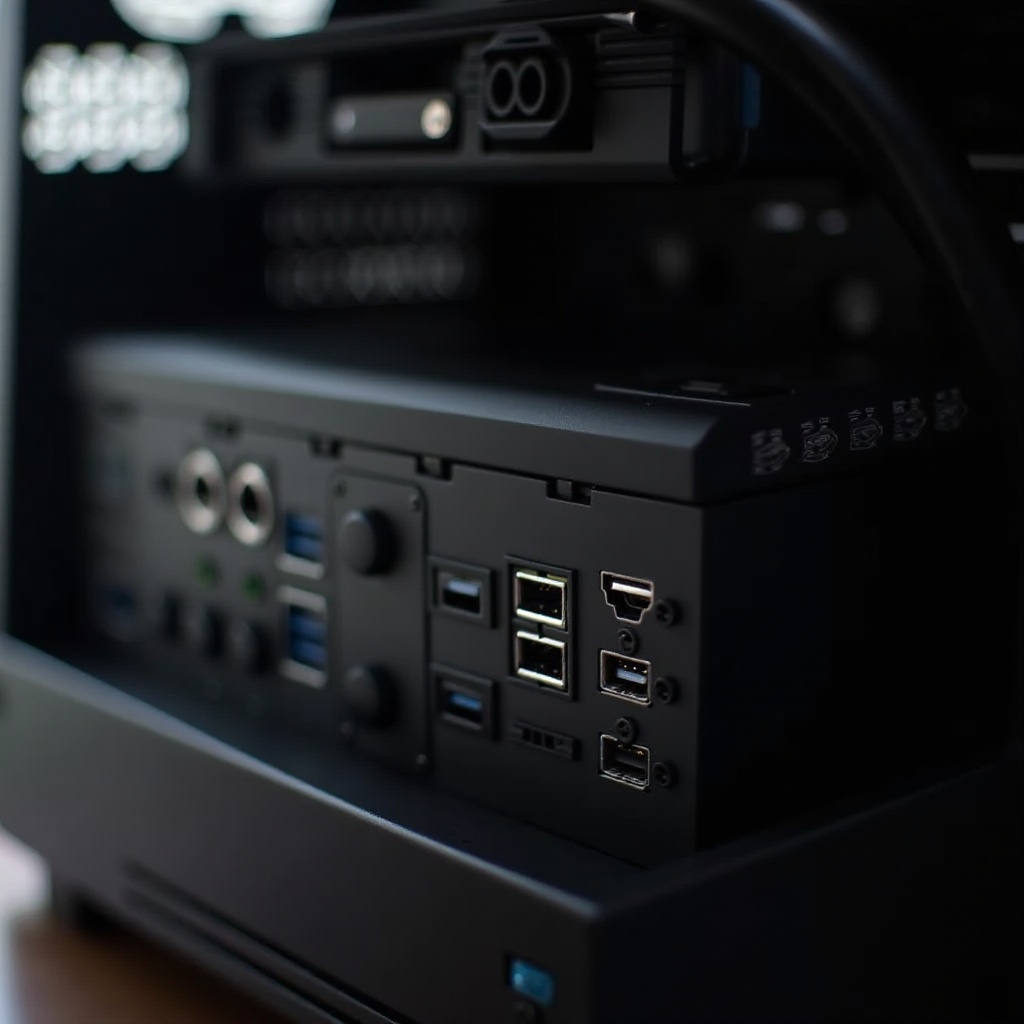Introduction
Choosing a computer case is a pivotal step in building a PC. A case not only encases your components but also influences their performance, cooling efficiency, and aesthetic appeal. As you navigate the options in 2024, consider case type, cooling solutions, design traits, and financial boundaries. This guide illuminates the path to a well-informed choice, tailored specifically to your requirements.

Understanding Different Computer Case Types
Grasping the types of computer cases available helps lay your decision’s groundwork. Different case types cater to diverse requirements and space constraints.
- Full Tower vs. Mid Tower vs. Mini Tower:
- Full Tower: Offers expansive room for high-end configurations, supporting additional GPUs and extensive cooling solutions. Perfect for enthusiasts needing maximum capacity.
- Mid Tower: Favored for its balance between capacity and manageability. It fits ATX motherboards and allows sufficient space for cooling units and expansions.
-
Mini Tower: Ideal for compact builds without sacrificing essential features. Offers space-saving benefits.
-
Specialty Cases (ITX, HTPC):
- ITX Cases: Tailored for small form factor builds with mini-ITX motherboards, suiting minimalistic setups with core functionalities intact.
- HTPC Cases: Designed for integration into entertainment areas, these optimize aesthetics and functionality, fitting seamlessly at home.
Knowing your case type ensures your build’s foundation is strong, setting the stage for detailed considerations.
Key Factors to Consider When Choosing a Case
Beyond basic types, assessing key factors reinforces a case’s suitability for your setup, safeguarding performance and longevity.
- Size and Compatibility: Measure components like motherboards and GPUs to assure fit. Match dimensions and layouts to your selected case.
- Cooling Systems: Airflow and Liquid Cooling Compatibility: Effective cooling is crucial. Seek cases with optimized airflow and provision for liquid cooling if planning intensive tasks.
- Noise Levels and Acoustic Performance: Consider cases with sound-dampening features to minimize operational noise. Silence contributes to a pleasant user experience at home or the office.
With these factors in mind, you can assure your case supports both your hardware and performance objectives.

Aesthetic and Functional Features
A case’s visual and practical facets are equally significant, impacting satisfaction and ease of use.
- RGB Lighting and Customization Options: Modern cases often provide RGB lighting for customization. Prioritize case designs allowing control over lighting settings based on your preference.
- Material Quality and Innovative Design: Durable materials correlate with longevity. Choose steel or aluminum cases with innovative elements like modular internals or tool-free access.
A balance between aesthetics and functionality ensures an appealing and practical workspace.
Budgeting for Your Computer Case
While essential, budget plays a vital role in case selection. Here are tips to manage costs effectively.
- Balancing Cost vs. Features: Identify must-have features and allocate your budget around them rather than choosing the most expensive option blindly. Quality surpasses price when matched with your requirements.
- Recommended Brands for Different Budgets: Reputable brands offer reliable products with substantial warranties, such as Corsair, NZXT, or Cooler Master. Weigh cost against necessary features for the best buy within your price range.
By balancing cost and features, you can choose a case that meets both budgetary and qualitative needs.
Ports, Accessibility, and Front Panel Features
Functional ports and accessible features significantly shape daily use and maintenance ease.
- USB-C, Headphone Jacks, and More: Opt for cases with up-to-date ports like USB-C, ensuring quick data transfer and accommodating personal devices effortlessly.
- Accessibility and Ease of Use: Cases with thoughtful design features like tool-less entry systems or dust filters improve maintenance, providing long-term usability.
Pay close attention to these aspects to guarantee convenience and satisfaction throughout your build’s lifespan.

Conclusion
Selecting a suitable computer case blends aesthetics, functionality, and budget considerations. By aligning choices with your performance goals and personal style, you foster a seamless and successful build process. With the insights provided, you can confidently navigate the options in 2024 and assemble a custom PC to meet your exact needs.
Frequently Asked Questions
How do I ensure my components fit into the case?
Measure your components, especially the motherboard and GPU, and compare these to the case’s specifications to ensure compatibility.
What is the importance of airflow in a computer case?
Efficient airflow prevents components from overheating, ensuring stability and extending hardware lifespan by maintaining optimal operating temperatures.
Are there any cases designed specifically for gaming rigs?
Yes, gaming-specific cases often feature enhanced cooling solutions, customizable RGB lighting, and expanded space for multiple GPUs, ideal for high-performance needs.
